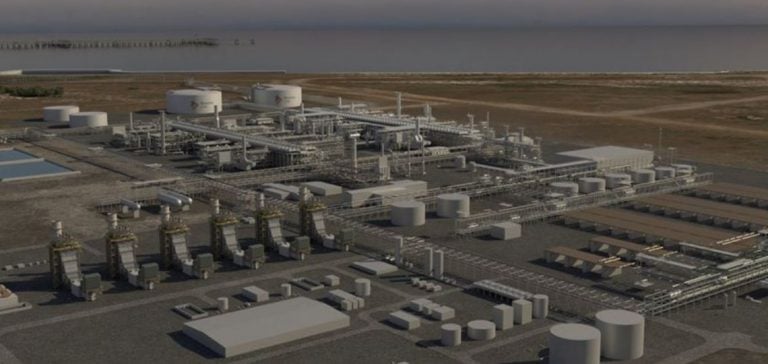The Rovuma LNG project, located in northern Mozambique, is central to the country’s energy ambitions.
This development aims to exploit part of the 85 trillion cubic feet of natural gas reserves discovered in the Rovuma Basin.
With a production target of 18 million tonnes of liquefied natural gas (LNG) per year, Rovuma LNG is one of the most ambitious projects in the global gas industry.
The development of this project is essential if Mozambique is to become a leading LNG exporter.
The core element of the project is the construction of twelve production units, each capable of producing 1.5 million tonnes of LNG per year.
These units will be built as prefabricated modules, an approach that optimizes construction costs and lead times, while ensuring flexibility in the implementation process.
Preliminary engineering phase
The mission entrusted to Technip Energies and JGC Corporation concerns front-end engineering design (FEED).
This stage is crucial for determining the project’s technical specifications, assessing risks, and providing a more precise estimate of costs and deadlines.
The mandate also includes the preparation of financial and technical aspects, in order to provide a solid basis for the final investment decision (FID), expected by the end of 2025.
This phase of the project is essential, as it enables us to anticipate and resolve potential problems, whether related to costs, risks or deadlines.
It also aims to ensure good coordination between the various stakeholders, including ExxonMobil, the project operator, as well as Eni and CNPC.
Accurate technical and financial forecasts are crucial to the long-term success of the project.
Technip Energies and JGC: expertise and modularization
Technip Energies and JGC Corporation have recognized expertise in large-scale LNG projects.
Their involvement in the Rovuma LNG project is largely based on the use of modularization, an approach that enables production units to be assembled off-site before final installation.
This method optimizes construction times and reduces the risks associated with field implementation.
In addition, risk management and compliance with technical standards are essential aspects in the preparation of this project, particularly in a context where industrial standards are becoming increasingly stringent.
The Rovuma LNG project must meet high expectations in terms of operational performance and reliability, aspects which preliminary engineering aims to secure before decisions are taken.
Challenges and prospects for Mozambique
The development of the Rovuma LNG project represents a major opportunity for Mozambique.
By becoming a key player in the global LNG market, the country could see its revenues increase considerably, both through the tax revenues generated and through infrastructure development.
The project will also create thousands of direct and indirect jobs, strengthening the national economy.
However, challenges remain.
The security situation in northern Mozambique, where the project is located, remains unstable, with armed insurgencies that could pose security risks for infrastructure and personnel.
In addition, the LNG market is currently subject to significant fluctuations, notably due to the global energy transition, which is driving demand and gas prices.
Increased competition in the LNG sector and uncertainties about global demand could also have an impact on future decisions.
Technical and economic conclusion
The Rovuma LNG project is moving forward with the involvement of Technip Energies and JGC Corporation to complete the preliminary engineering phase.
The modular approach and expertise of both companies are strategic assets to ensure the technical viability of the project.
At the same time, the Final Investment Decision (FID) scheduled for 2025 will represent a turning point for the future of the project and its impact on the Mozambican economy.
Mozambique, with its large natural gas reserves, could play a central role in global LNG supply, but will have to overcome obstacles linked to regional challenges and global market uncertainties.






















